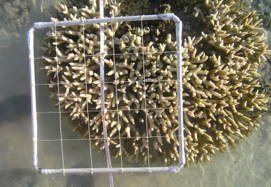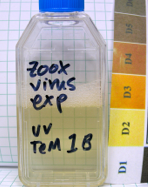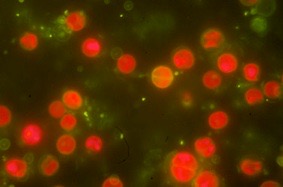Microorganisms are diverse, abundant, and drive important processes in ocean ecosystems.
Our research integrates across diverse approaches in order to:
1. Characterize the diversity and evolutionary histories of marine microorganisms;
2. Interrogate the context-dependent roles of microorganisms in host health and disease; and
3. Leverage properties of microorganisms, symbioses and trophic interactions to mitigate global change impacts.
We primarily use reef-building corals and their microbial symbionts as a model system. Corals are ecosystem engineers that harbor diverse assemblages of dinoflagellate algae (Family Symbiodiniaceae), viruses, bacteria, apicomplexans, archaea, and fungi. Coral-associated microbial assemblages are generally different from those in the surrounding seawater.
Viruses are likely to impact coral and reef health by infecting coral tissues or symbionts, triggering changes in colony physiology and energy flows on reefs. Our research helped delineate the ‘core coral virome’: the viral families most commonly found in stony corals, particularly those exposed to abiotic stressors. Investigations of stressed corals have demonstrated that environmental changes can trigger viral production, which correlates with coral bleaching. Bleaching is a diminished health state in which Symbiodiniaceae are lost en masse from hosts. Several viral groups likely infect Symbiodiniaceae, including phycodnaviruses, megaviruses, and +ssRNA viruses (‘dinoRNAVs'); such viruses may contribute to some coral bleaching signs. These viruses, their diverse Symbiodiniaceae hosts, and their roles in coral reef ecosystems are a central component of the lab’s research.



Logo and Art Credit: Janavi Mahimtura Folmsbee, @janavimfolmsbee